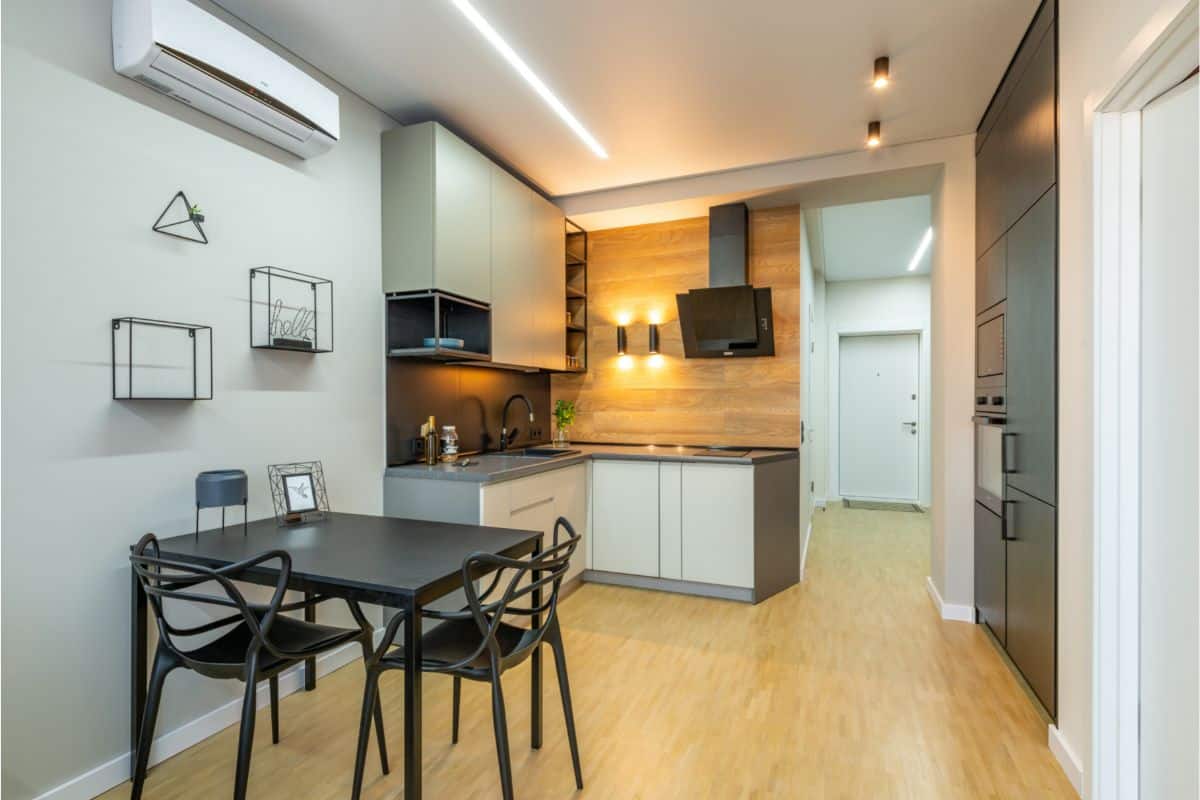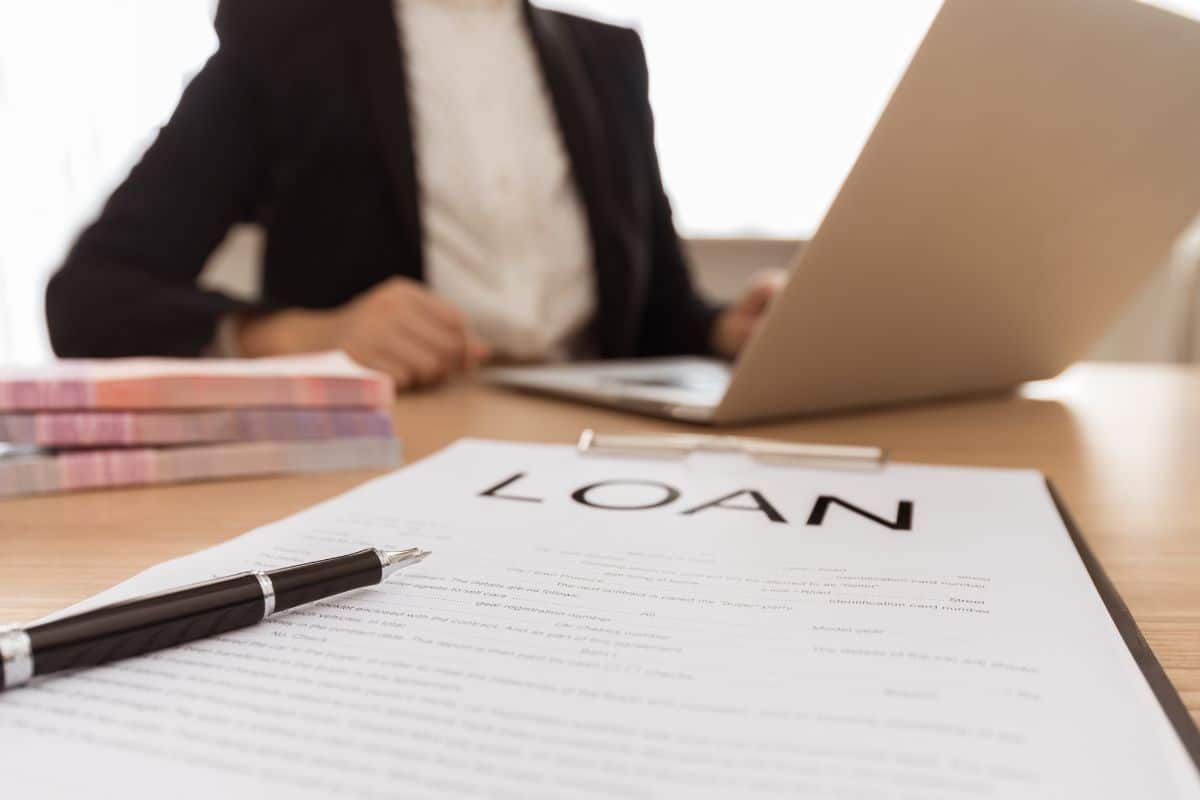It can be difficult to come up with a budget for an apartment, particularly if you’re not experienced with handling your money.
Whether you’re moving into your first place, saving after your first full-time position, or moving after a divorce, it can be a lot thinking about all of the things you will be spending on.
Fortunately, there are steps you can take to budget for your apartment, which are very simple to do!
We’ll cover how to budget for an apartment in this post, including some basic categories you’ll need to consider and how to make a budget worksheet.
Budgeting For Your Apartment
Many individuals try not to think about budgeting, as it can weigh a lot on the mind. (Although, if you’re looking to increase your financial literacy, these books are great resources.)
However, laying out some simple expense categories can help make budgeting easier, even if you’re not that great at maths!
One of the easiest budgeting methods is to produce a worksheet, either online or in a notebook, depending on your preferences.
You’ll be noting down every dollar you spend in this template for one whole month.
The spreadsheet should consist of three columns: the date, expense, and amount that was spent.
Once the month is up, go through the list and separate the expenses into the seven groups below, then calculate the total money spent in every category.
These categories are:
- Rent: You may pay rent at present, but this might be much less than your desired apartment.
- Services: These are monthly essentials, like electricity, internet, gas, and cell phone bill
- Monthly costs: Expenses per month, like gasoline, health insurance, car insurance, or bus fare
- Loans/Debt: Debt or loans, like student loans, credit cards or car payments
- Savings: Anything you put into a savings account, like annual expenses, moving costs, car registration fees, etc.
- Entertainment and social fun: Make sure you set money aside for fun and social activities
- Food: It’s a good idea to separate home dining and eating out costs.
Making An Apartment Budget Spreadsheet
After you’ve made a spreadsheet with your current expenses, you’ll need to make another one with your projected expenses after you’ve rented an apartment.
You can then look at any budget adjustments required after you’ve moved into a new place.
Align your anticipated budget spreadsheet next to your current one, then go over each category to find any spending regions that need changing.
- Rent: It’s best to avoid rent which goes over 35% of your take-home income.
- Services: Your rental contract may need you to pay other utilities, like water or electricity.
- Monthly costs: Make sure you buy renters insurance along with any other monthly costs.
- Loans/Debt: As above.
- Savings: As above.
- Entertainment and social fun: As above.
- Food: As above.
You can track your possible expenses with an easier method. Simply create a three-column chart with the categories: necessities, wants, and savings.
Half of your spending costs should be spent on necessities, which cover essentials like rent and utilities.
30% should be spent on wants, which cover features like travel, while the remaining 20% should go into your savings.
Calculating Moving Expenses

A large component of budgeting for an apartment will also go into several one-time fees.
It’s essential to financially prepare for these costs before you move, as this will avoid any extra money worries.
Application Fees
Many landlords charge non-refundable application fees to recognize serious applicants.
Application fees are around $100, so make sure you factor this into your moving expenses.
Security Down Payments
Security deposits are usually around a month’s rent, though your landlord may require your last and first month’s rent.
If there aren’t any damages when you move from the apartment, you should receive your security deposit back.
You can find the conditions for your security deposit in your lease.
Moving Vehicles
If you have lots of large furnishings, or are moving a great distance away, you might need to pay for a moving truck.
Movers
Similarly, if you have lots of heavy fittings or are traveling across the country, you might need to employ movers that can help you move.
Bear in mind that if you’re moving to a place within the same location, you can reduce the moving costs by asking family and friends to help you move.
Budgeting For Apartment Furnishings
You’ll need to consider the cost of furnishings after you’ve chosen your new apartment.
New, unfurnished places will require lots of items, but the cost of these can increase rapidly.
Other than furniture, you’ll need to consider linens, cookware, dishes, and home decor to make your apartment your own.
If you’re on a lower budget, you can reduce the cost of these by opting for used furniture and looking in resale stores.
Friends and family may have additional items which they don’t need anymore, which can be especially helpful if you are a single parent.
You can also opt for a furnished apartment if you don’t want to pay for furnishing expenses.
Saving For An Apartment Tips
Make sure you go over your present monthly expenses. After you move, a large amount of your take-home income will be spent on rent. Think about what are the largest expenses that you spend today, as well as how you can change these expenses.
A great way to save for your new apartment is to act as though you’re currently paying rent.
Place this money into a different savings account, so you aren’t tempted to take the money from your debit card.
If you do this successfully for three months, you’ll have saved a month’s security down payments and a lot of your moving expenses.
You’ll also have become adjusted to living on a budget, so it won’t be much of a shock to move into a new place.
If your budget is still too tight after taking all of these steps, think about getting a roommate to share the expenses.
Final Thoughts on How to Budget for an Apartment
Budgeting for a new apartment can seem difficult, but it’s an important skill that can help you avoid financial problems in the future.
Thinking about your current expenses, projected expenses, moving costs, and furnishing costs can help you navigate the real estate world. We hope that this article has given you some great tips on how to budget for an apartment.




